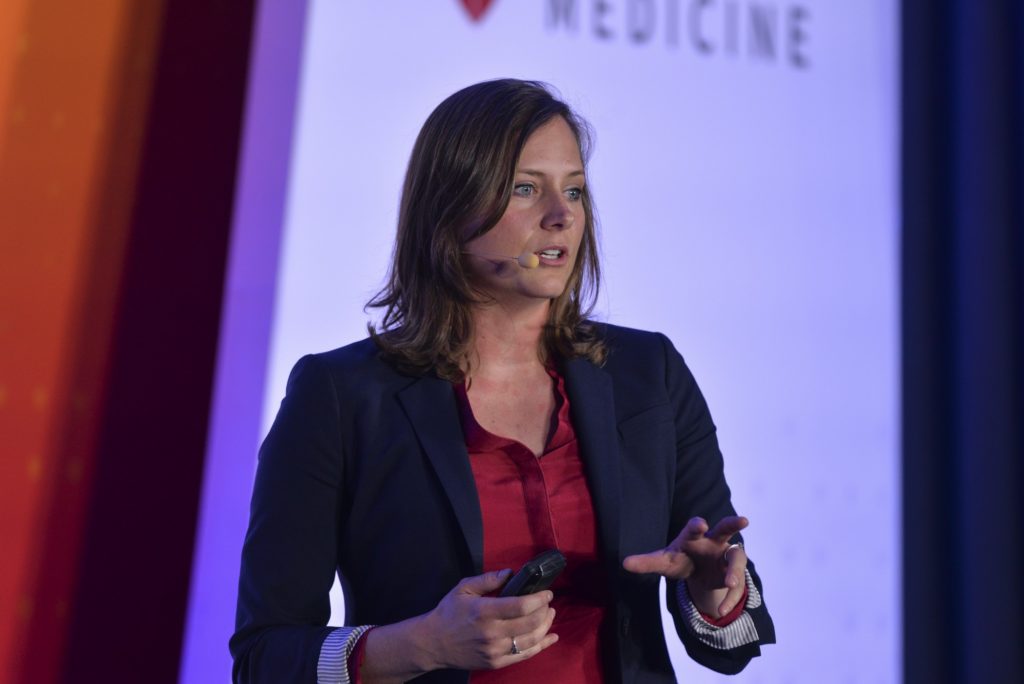Meet The Women of The Blockchain: Kat Kuzmeskas, President and CEO of Simplyvital Health
“If I could start a movement, it really would be on increasing the flow and access of healthcare data in a secure and compliant way, globally. As stated above, healthcare data does not move specifically because of the pervasive misalignment of business incentives in healthcare. Countries where data is easily accessible, and a patient’s information is longitudinal and transparent, have better health outcomes — an exceptional example is Singapore. There is an excessive amount of waste in healthcare. We at SVH strongly believe that a lot of this waste is due to the inability to access complete health information on patients when needed most.”
I had the pleasure of interviewing Kat Kuzmeskas, President and CEO of Simplyvital Health.
Thank you so much for doing this with us! Can you share with us the story of how you decided to pursue this career path? What lessons can others learn from your story?
While I have been training and studying leadership for more than 15 years, the jump happened in December 2016 when as a hospital administrator I needed, but could not find, a certain type of software. The desire to jump was not instantaneous. Rather it was built on nearly 2 years of market, customer, and product research, and on my experience working within an organization that supported entrepreneurs in Connecticut. The desire to “problem find” in healthcare (i.e.: the conscious decision that I wanted to be an entrepreneur) was stimulated by an insatiable curiosity and work ethic that was incongruent to the culture at the hospital I was working at that time. It became pretty clear that my soul was more interested in working faster than it was at the time. While innovating in healthcare is difficult and can be slow, I attribute the speed of our company in the prior research of identifying and understanding customer needs and buying habits. This is a step that is a common thread in the most successful startups, discussed in all the top entrepreneur podcasts and books but is the most often skipped. This is exceptionally true in the blockchain space. I am amazed by the number of blockchain companies in healthcare that did not assess or try to understand their customers before jumping into the market!
Can you tell me about the most interesting projects you are working on now?
We have many interesting projects, but the most impactful is Health Nexus, our open-source HIPAA-compatible blockchain protocol. This is a true protocol with its own consortium and governance, and one of the only HIPAA-compatible public permission blockchains globally. Our proprietary software leverages blockchain, but in healthcare, blockchain must be safely adoptable to healthcare standards. So, we needed Health Nexus anyway and decided to open-source it for others to be able to use, too.
Health Nexus is similar to Ethereum as it is a protocol that others can use to build their own dApps. We already have more than 20 companies in different stages of development with the Health Nexus protocol. All are interested in the Health Nexus protocol specifically for its HIPAA-compatible nature. Anyone can check out and use the open-source code: github.com/Health-Nexus
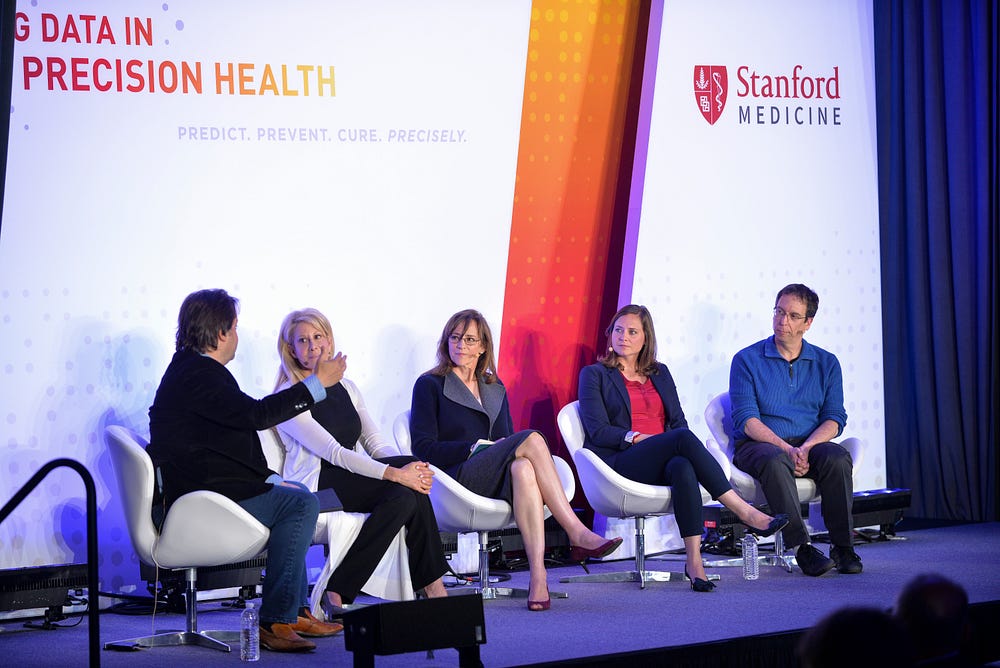
None of us are able to achieve success without some help along the way. Is there a particular person who you are grateful towards who helped get you to where you are? Can you share a story about that?
I have been lucky to have many mentors along the way, so I cannot attribute where SVH is and I am today to just one person. However, there are a few key programs that have certainly shaped me into the person I am today, and all remind me that leadership study is continuous. These programs are the Posey Leadership Institute at my college, Camp RYLA (Rotary Youth Leadership Award) that I attended as a rising high school senior and continue to volunteer with as a Counselor and Teach For America. Each of these programs was highly selective, which cultivated an unparalleled network of mentors, colleagues, and leaders that helped shape who I am today.
What are the 5 things that most excite you about blockchain and crypto? Why?
- Specifically for healthcare, I have an unbridled enthusiasm for the potential for how cryptocurrency and in parallel, game theory, can impact payment methodologies in healthcare. Albeit, we are a distant future away from this, but we as a company and other leaders in this space are paving the groundwork necessary to drive such an exciting innovation in this space.
- While blockchain is not a panacea, I am extremely excited about the opportunity that the unique aspects of blockchain technology plus cryptocurrency have to create self-sustaining systems where it has been difficult to attain traction previously in healthcare. Most specifically in the area of health information exchanges. More than $560M of US funding went to establish health information exchanges, and nearly all have failed because of lack of trust and the barrier caused by the reality that healthcare data movement is a business issue, not a technology issue. Blockchain and cryptocurrency in the ever-growing Value-Based Care environment (payment for outcomes, not number of procedures) can provide a unique ecosystem for health information exchanges to thrive.
- The conversations that have ignited around innovation in healthcare, from entrepreneurs to entrenched providers, on how to leverage blockchain technology to drive novel, meaningful change is refreshing — and exciting — to see. All participants along the continuum of care are engaged in the conversation. There is much opportunity in healthcare and even though innovation can be slow (see the next section!) the conversation must start somewhere.
- The opportunity to allow patients to govern access to their data in a secure way for the first time is extremely exciting. Leveraging blockchain technology, a patient will have the opportunity to govern and track access to their data across their entire care journey. Caregivers can also partake in secure, efficient data access for patients they are caring for, which is a strong need for overtaxed caregivers, who are usually family members or friends. Using a blockchain-based app will provide a unique view to a patient’s longitudinal health, create trends, but, unlike current personal health records, will provide the extra benefit of being able to securely, and in an immutable way, track the access of the data.
- Another very strong, exciting opportunity for blockchain, especially new tools like zero-knowledge proofs, can bring industry competitors to the same table for data access and decision making. This is a massive step forward and a way to start to bring down the historically siloed healthcare industry. Opening up access to data, without compromising business intelligence or market share details, can increase communication, drive down costs, and improve patient care.
What are the 5 things worry you about blockchain and crypto? Why?
- For healthcare specifically, I am worried about the slower adoption of the utilization of cryptocurrency. Because some innovations in healthcare are trapped by misalignment in business incentives, there is a myriad of opportunities where cryptocurrency, specifically, can have an incredible impact on healthcare innovation, from self-sustainable health information exchanges between previously competing healthcare entities to incentivized payment models for patient outcomes that are grander than current Value-Based Care programs. One of the specific areas we focus on as a company for our open source and proprietary software is data access. Data access and movement in healthcare is a business issue, not a technology issue. Financially incentivized systems have opened up data access, as we have seen in successful Value-Based Care programs.
- The bad actors in this space very much concern me. They are making it difficult for the rest of us to leverage this technology to create social good. Bad actors include many in the space, from marketing contractors to social media trolls (in all industries, really) to companies with no intention to deliver on what they said they would build.
- To that end, it is concerning the number of market entrants that are creating confusion among the general public of what blockchain can do. We’ve heard countless stories of entrepreneurs who brought in millions in token sales without knowledge of how to create the blockchain application they outlined in their whitepaper.
- Misunderstanding, misinformation, and confusion around blockchain due to the hype culture associated with the crypto craze is a concern. Specifically, in healthcare, blockchain is not a panacea, but there are many that think it is. Rather, there are many political and business barriers to overcome even before we can harness the true power of blockchain where it makes sense. There has been much misunderstanding that the blockchain technology alone can handle all the data issues in healthcare. In addition, we find that we spend a lot of time unwrapping existing expectations during our educational process. To that end, we find it fascinating the increasing desire to understand how blockchain works. We haven’t seen a similar desire for understanding how the cloud works for example (most people still do not realize that the cloud is just someone else’s computer!). But as our friend Ted Tanner said during our shared panel during the ONC conference: there is so much interest in understanding how blockchain works because of the clamoring for the elimination of the middleman.
- The incongruent speed at which blockchain innovation moves to healthcare innovation. We have seen, and some of us have personally experienced while working in healthcare, that there is a lot of talk about innovation in healthcare, but the action is typically slow. While this can work to our advantage as innovators in a nascent industry, if expectations (such as the entrepreneurs, companies, or equity investors) are not ready for the reality, this can create a negative localized impact. The incongruent speed can also have an impact on security: blockchain systems built and adopted by healthcare will have the rare quality of being both very tried and true — and constantly changing and improving.
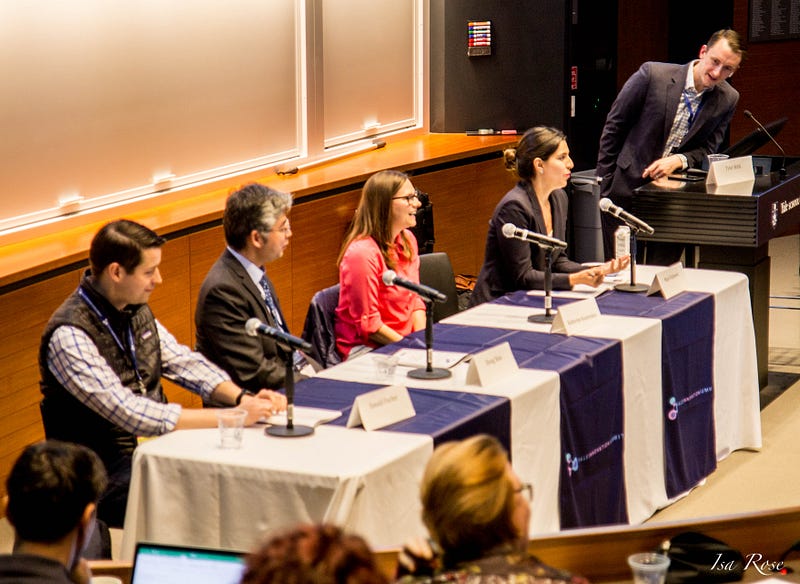
How have you used your success to bring goodness to the world? Can you share a story?
I can’t wait to see what good developers are able to bring to the world by leveraging the open-source, HIPAA-compatible Health Nexus! BUT — personal to me: One of my favorite projects I initiated was raising $21,000 within 2 weeks as an undergraduate college student (our college had 1,300 students, and the town had a population of 36,000 at the time). We raised the funds for Rotary International’s Wheelchair Foundation, which sends very durable wheelchairs to those that need but cannot afford them. Our fundraiser included students renting wheelchairs for a day to understand the perspective from those who use wheelchairs, a 1:1 match by the Sherman Rotary Club, and a wheelchair basketball game during an Alumni basketball game. The fundraiser is now in its 13th year.
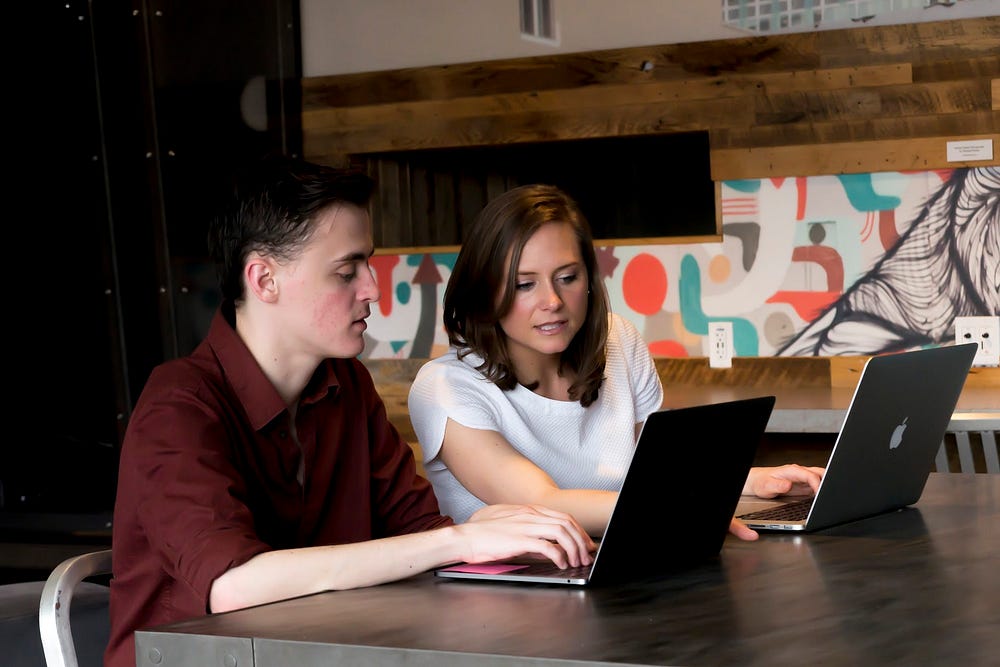
What 3 things would you advise someone who wanted to emulate your career? Can you share an example for each idea?
- Allow time to grow, develop, and learn about yourself and from others before jumping headfirst into an entrepreneurial venture. Self-reflection, self-realization, and hands-on experience are clear advantages to a flourishing venture. Having worked in various areas of healthcare, specifically hospital administration provides a unique edge for our company. There is a lot of gained knowledge from working IN the industry that is not apparent to those who have never worked in the industry.
- Find a vertical that makes YOU passionate, not what makes your parents, friends, and mentors happy. Be you. Building a company is taxing: physically and emotionally. Having an intense passion and interest in your specific vertical makes enjoying the process of building a company more enjoyable and sustainable.
- Find ways to continually surround yourself with those who are where you want to be and those who have more experience than you. The fastest way to success is to leverage your ability to learn from others. Until I started my company, I had a personal goal of being the youngest in every meeting, including those for which I created the deliverables. These meetings shaped a lot of my market and industry knowledge, learning and hearing from current leaders in the industry.
What is your favorite “Life Lesson Quote”? Can you share a story of how that had relevance to your own life?
Trust the Process. This is a phrase I heard as a young leader, internalized, but did not experience until I was an entrepreneur. It also happens to be one of the main themes my co-counselor and I used at this year’s Camp RYLA! As one who is extremely competitive and goal oriented, I did not realize, until I started SVH, that the process, hardships, ups, and downs are our competitive edge. It is in how we leverage, utilize, and learn from our experience and the challenges that will continue to drive us forward and lead the market. Building a company is not a short-term project — obviously! — but the journey to the “end goal” is arguably more important than the “end goal”. The journey, and using the journey strategically, will determine how and when you attain your “end goal”.
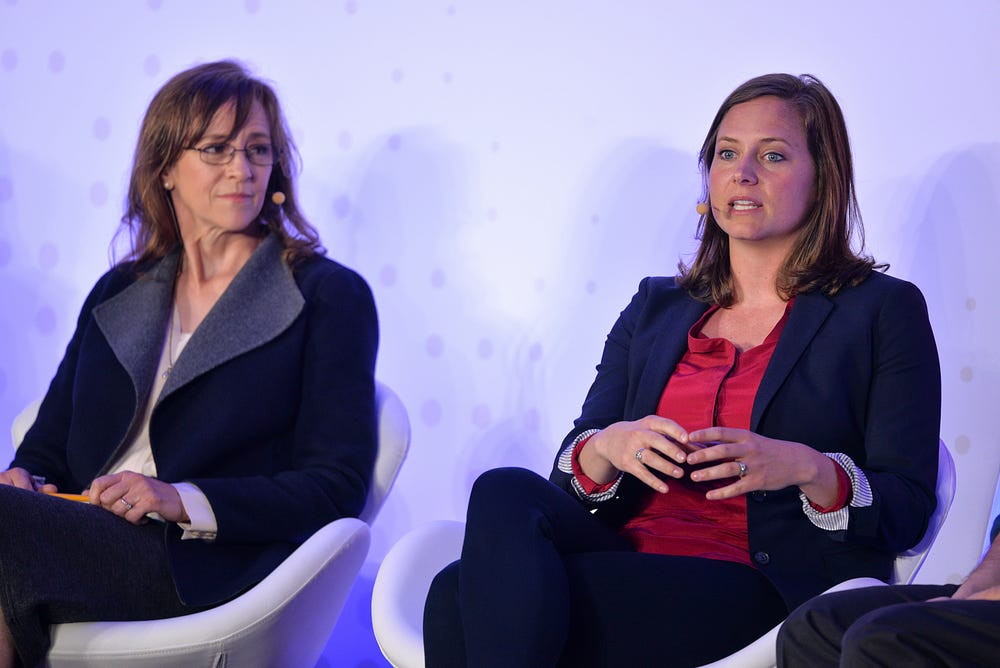
You are a person of great influence. If you could start a movement that would bring the most amount of good to the most amount of people, what would that be? You never know what your idea can trigger. :-)
If I could start a movement, it really would be on increasing the flow and access of healthcare data in a secure and compliant way, globally. As stated above, healthcare data does not move specifically because of the pervasive misalignment of business incentives in healthcare. Countries where data is easily accessible, and a patient’s information is longitudinal and transparent, have better health outcomes — an exceptional example is Singapore.
There is an excessive amount of waste in healthcare. We at SVH strongly believe that a lot of this waste is due to the inability to access complete health information on patients when needed most.
How can our readers follow you on social media?
We have many ways folks can follow us!
Twitter: @kkuzmesk, @SimplyVitalHQ
Facebook: www.facebook.com/SimplyVitalHealth
LinkedIn: www.linkedin.com/company/SimplyVital-health
Medium: Medium.com/SimplyVital
This was very inspiring. Thank you so much for joining us!
Stay informed with daily updates from Blockchain Magazine on Google News. Click here to follow us and mark as favorite: [Blockchain Magazine on Google News].
Get Blockchain Insights In Inbox
Stay ahead of the curve with expert analysis and market updates.
latest from tech
Disclaimer: Any post shared by a third-party agency are sponsored and Blockchain Magazine has no views on any such posts. The views and opinions expressed in this post are those of the clients and do not necessarily reflect the official policy or position of Blockchain Magazine. The information provided in this post is for informational purposes only and should not be considered as financial, investment, or professional advice. Blockchain Magazine does not endorse or promote any specific products, services, or companies mentioned in this posts. Readers are encouraged to conduct their own research and consult with a qualified professional before making any financial decisions. The featured image used is just a creative depiction of the title and it does not intend to hurt sentiments of any person or institution. If it hurts anyone sentiments, please do not hesitate to reach out to Blockchain Magazine.

 Bitcoin
Bitcoin  Ethereum
Ethereum  XRP
XRP  Tether
Tether  Solana
Solana  USDC
USDC  Dogecoin
Dogecoin  Cardano
Cardano  Lido Staked Ether
Lido Staked Ether  TRON
TRON  Wrapped Bitcoin
Wrapped Bitcoin  Chainlink
Chainlink  Wrapped stETH
Wrapped stETH  Avalanche
Avalanche  Sui
Sui  Stellar
Stellar  Litecoin
Litecoin  Toncoin
Toncoin  Shiba Inu
Shiba Inu  Hedera
Hedera  LEO Token
LEO Token  USDS
USDS  Hyperliquid
Hyperliquid  Polkadot
Polkadot  WETH
WETH  MANTRA
MANTRA  Bitcoin Cash
Bitcoin Cash  Bitget Token
Bitget Token  Ethena USDe
Ethena USDe  Wrapped eETH
Wrapped eETH  Uniswap
Uniswap  Monero
Monero  NEAR Protocol
NEAR Protocol  Pepe
Pepe  WhiteBIT Coin
WhiteBIT Coin  Aave
Aave  Bittensor
Bittensor  Ondo
Ondo  Aptos
Aptos  Internet Computer
Internet Computer  Dai
Dai  Official Trump
Official Trump  Ethereum Classic
Ethereum Classic  Mantle
Mantle  Tokenize Xchange
Tokenize Xchange  OKB
OKB  Gate
Gate  sUSDS
sUSDS  Sonic (prev. FTM)
Sonic (prev. FTM) 